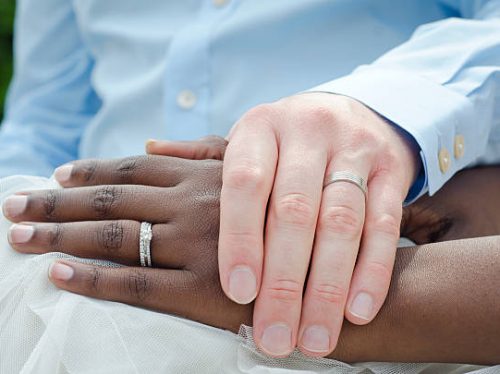How to deal with postpartum depression

Biira had a normal birth early this year and everything went well since mother and baby were both okay. Her first week was good because she got breast milk early enough, so there was no frustration. However, even with everything good around her, she had a feeling of responsibility and duty towards the child.
When people visited and asked how motherhood felt, she told them it was a job. She says, “I knew that I had to eat in order to get breast milk, get some rest so that my body can produce breast milk— walk a bit so that I reduce the back pain and whatever walking helps you with. Everything I did at that time, I did it because I have a child that depended on me for her survival.”
After two weeks of good night and day sleep came colic which was characterized by inconsolable crying that happened at a particular time of day or night for a very prolonged period.
“Sometimes she would cry for over three hours straight in the night. This got me more frustrated. I began to develop feelings of immense sadness. There are times when this child would stop crying and after she has stopped, I would just sit there and cry. I could not point to a particular thing,” she recalls.
When she shared with people around her, they made careless comments that she was a mother. “I just felt overwhelmed, sad, anxious, scared, worried, and irritable. There are times I would just be angry over I don’t know what… No one understood me or what I was going through; I felt like no one listened to me or cared.”
With time, her breast milk supply reduced. She started formula milk even when she knew that she was supposed to breastfeed exclusively for six months.
“I was so tired and fed up of being home in the house, looking at the same things and the same people. I just wanted to reset, go to a new environment. I was tired of the fact that my whole schedule revolved around a child.”
But what is PPD?
Evelyn Kharono Lufafa, a counselling psychologist at Sermotherapy Counselling Foundation, describes postpartum depression as a range of physical and emotional changes that many new mothers experience from the feeling of excitement to worry, anger, fear and sadness.
This usually happens to women who were not prepared to have a baby, or if they get a miscarriage and fail to overcome it. She remarks that most women who get postpartum depression are those that get miscarriages, stillbirths or those whose babies die after birth. However, there are also some women that get depressed after giving birth and their baby is alive (baby blues).
In such a situation, the mother is sometimes too young and was not prepared for the baby, if there was a fight with the spouse, or not getting enough support from friends and relatives.
She says, “For mothers that lose their babies, if the grieving process is not long enough or if they do not get the psychosocial support, they are likely to become depressed. Society worsens the situation of such mothers with rituals where the mother is not allowed to go for burial yet this really plays a big role in the healing process.”
Symptoms
·Anger outbursts
·Withdrawal and sadness
·Crying all the time
·Loss of interest in everything including personal care
·Poor appetite
·Crying when the baby cries
·Somber mood
Male depression
Although usually ignored, male postpartum depression and anxiety due to childbirth is also common especially for a couple that is having their first child about three weeks after giving birth. Society as a whole views the role of men in childbirth as passive, and therefore depression resulting from the event can seem unwarranted.
She says, “The new father then becomes overwhelmed by the new responsibilities of parenting and is having issues coping with them all. Some men become depressed because they feel that all the attention has been focused on the child and think that he is not being cared for. This is usually irrational but affects the men greatly as the mother quickly bonds with the baby.”
The commonest risk factors to paternal postpartum depression include sleep deprivation because of the crying baby, loss of a job that would otherwise be providing for the family. If a mother is suffering from depression, the father is likely to suffer from it too.
Lufafa remarks that with a new baby, sexual activity and regular sleep are usually on hold. These two factors can affect many men significantly. “He may feel lethargic, lonely, confused, guilty, lacks energy, and can’t work up the motivation to hang out with friends or exercise, frustrated and having trouble focusing at work.”
The therapy
Mothers who have baby blues need support from friends and relatives. In the event that a woman goes to extremes of postpartum depression, she can take antidepressants but these should be under the prescription of a health worker.
Therefore, if you feel anxious and have extreme fears after giving birth, you need to confide in your spouse or relative that will help you seek medical attention when the need arises.
Lufafa says, “When you realize you have symptoms mentioned above, you may need therapy from a therapist, psychologist, or social worker to help you learn how to change and start over again. It also helps to get in touch with another woman who has gone through the same.”
A lack of sleep can accelerate a number of mental health issues. As parents, you can agree to take shifts for night feeding, diaper change and general care for the baby while the other partner sleeps.
Many times the baby will make you feel so busy that you do not want to leave home but it is important that you create family time and move out. Make social connections with friends and family to help you in the healing.
She also recommends men who are suffering from postpartum depression to create dome time to have workouts at least three times a week.
In the situation when the couple has lost the child, there is usually no specific amount of time to know when such a mother will be over the grief because different people react to situations differently. This death also impacts the father of the child. The two cannot be compared because mental health is personal and unique to every individual.
“This is why, when I get such a case, Lufafa says, I let them go through the process by letting the mother go to the burial site, buy a wreath for her baby and let her say all those words she would if she had been present. It is also important that you let such a mother give a name to the baby and recognize it as a human which many people in society do not do. They keep telling the mother that she would get another child, forgetting the attachment she had with the baby and that she needs to grieve fully. ”
Men should also have enough grieving time even though society does not think that it is right for men to mourn and grieve over the death. It takes time for a man to also heal from depression.


















